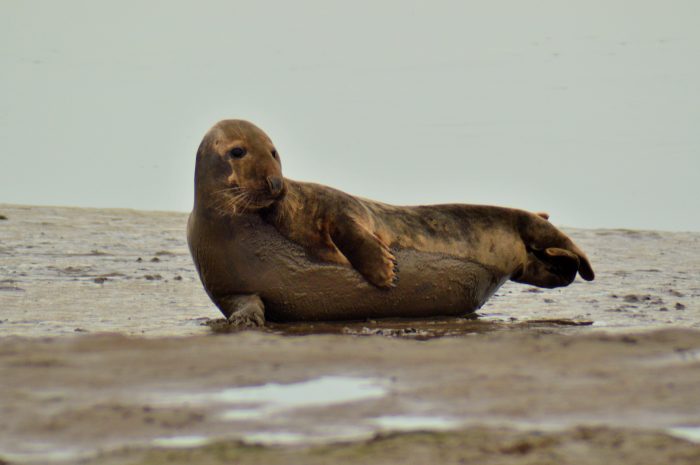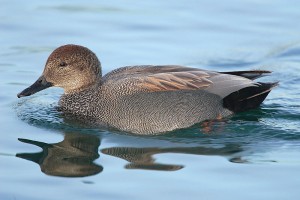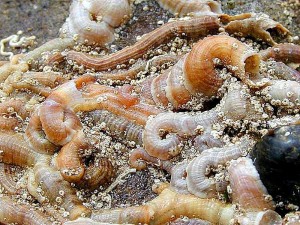10 Words Of Advice To Aspiring Conservationists
Here James Common offers five tips to would-be conservationists seeking a career in the environmental field.
 Image: James Common
Image: James Common With the world and its wildlife in an altogether precarious state at present, never before has there been a greater need for people to protect it. The enduring decline of biodiversity and the prophesied collapse of our natural environment, mercifully, coming at a time when a career in conservation appears rather fashionable. Now, more people than ever are jumping through the hoops of education with the ultimate aim of working in the environmental field. A trend which should be celebrated by all.
That said, for every successful young conservationist, many more find themselves floundering in the dreaded post-university abyss. Frustrated, and unable to progress in the direction they so desire. This itself really is not all that bad – we have, after all, all been there at one stage or another. Though when I hear students (and graduates) complaining about the “competitive” nature of sector and the lack of available job opportunities, I do find myself getting a little frustrated at times. Particularly when some of those complaining do so only after sailing through their respective undergraduate degrees in a giddy haze of booze, inactivity, and poor decisions. Below are a few things I often say to such people – intended with all due respect, of course.
IT’S NOT ALL ABOUT PANDAS.
From my experience as an undergraduate, the majority of people enroll on conservation courses because they desire to work overseas: because they wish to give their all in the pursuit of Pandas, Tigers, Elephants and other grandiose species seen regularly on TV. This is all well and good, but you cannot expect such opportunities to fall into your lap. To get there you are going to have to work with bats, birds, fungi, lichen, snails and even moss – you are going to have to get your hands dirty with species seemingly less desirable than those that feature in your ecological wet dreams. Realistically, given the sheer volume of people currently working on the larger, charismatic animals, you are going to have to start small and show your dedication elsewhere. Sulking or, worse still, quitting when things do not immediately go your way is a sure fire way not to achieve your dreams. It pays to be realistic.
Anyways, sometimes it is possible to do the greatest good by thinking “outside of the box”. Many and more species need our help, from bees and worms to no end of embattled red-list plants. These creatures are equally worthy of our attention and by considering them you broaden your horizons and ascertain a niche. Individualism is often a bonus when trying to get noticed amid a crowd.
STOP VOLUNTEERING “WITH” ANIMALS.
Now this one really annoys me at times. Just because you have volunteered alongside animals does not necessarily stand you in good stead for a job in conservation. Voluntary placements abroad are all well and good, but given the dubious ethics and questionable value of some opportunities – whether you’re working within a sanctuary for Sloth Bears or petting Elephants in Thailand – such things may not actually benefit you in the slightest. Work with animals does not necessarily provide you with the skills you need for a life in the workplace, and many employers see such experience as irrelevant, at best. Particularly if you are applying for a job in Britain, as many of us have to at one point or another.
One must be very careful when choosing where to devote their time abroad, especially as some such placements comprise little other than money-making ventures for the parties involved, and while you may be left feeling rather giddy after bottle feeding an elephant or two, the developmental benefits of such are sparse. If you want to gain applicable experience, get your hands dirty on your local nature reserve or shadow an ecologist while surveying for Newts. These things may not seem as glamorous, but they are undoubtedly more beneficial to your career prospects. This subject has, however, been covered in much more detail by the wonderful James Borrell here and, as such, I will curtail my waffling on the subject.
LECTURES ARE NOT ENOUGH.
For the love of god, please do not think that simply attending lectures and the odd seminar – however diligently – is enough to make your dreams come true. It’s not. By large, most of the unemployed or struggling conservationists I know are those who relied solely on such things as their go-to source of education, when in reality, they merely provide the inspiration for further exploration. Students, at least at undergraduate level, often have a lot of free time, and it really is worth filling it with relevant activities where possible. Volunteer – whether for one day a week or the entire summer holidays – join societies, give talks, lead trips, tag along on field trips or simply go outside and observe nature. Every little thing you do at this stage builds skills, showcases passion and sets you apart from the thousands of others in exactly the same position.
SHOW A BLOODY INTEREST.
Okay, this one links in with the last point but, in my opinion, deserves a spot of its own. And the number of aspiring conservationists I have encountered who harbour dreams of working with Rhinos yet cannot identify a Roe Deer or Vole, is wholly frustrating. Though I find it hard to comprehend, there are would-be conservationists who have never once visited a nature reserve absent forceful persuasion, nor attempted to engross themselves in local wildlife. It baffles me.
One of the most common words showcased on environmental job applications is “passionate”, though how are employers to know you are passionate about the natural world when you do little to show it? Using terms like this can come across as vacuous when you have little experience to back it up, and despite the many ways in which one can highlight their dedication, some choose not to. Thus leaving others, whether they be potential employers or supervisors, guessing as to their commitment.
Whether you choose to fundraise, commit to voluntary work, maintain a blog, contribute to your institution’s newspaper, give time to citizen science or merely maintain a relevant social media account, please be sure to do something. Those who eat, sleep and breath the natural world in their spare time tend to do much better. Just look at the great young conservationists in A Focus On Nature for inspiration.
NETWORK LIKE YOUR LIFE DEPENDS ON IT.
Like most career paths, in conservation, knowing the right people, or at least having them know you, can be incredibly beneficial. And while maintaining a public profile may not be to everyone’s taste, the benefits of such can be enormous. From invitations to conferences and excursions where you may, by chance, be presented with the chance to engage with and impress experts in your chosen field, to national or regional meetings of clubs and societies. All have their benefits, as do groups specially designed for young people. Social media can be as powerful a tool as any when it comes to making an impression, and whether you use Twitter, Facebook or LinkedIN, all can come in handy when it comes to getting noticed. Get yourself out there, loud and proud.
On a similar note, do not be afraid to send direct messages on social media, email or, god forbid, write to those you admire, or people whose work you found to be of particular interest. Ask questions, request further information, praise studies, even criticise – providing you do so in a polite manner. All of this shows passion and, as I stated above, passion is often the deciding factor when it comes to progression.





2 Comments
I applaud your advice. I volunteered in marine conservation for many years before and during my degree. Because of this and my previous work experience of customer service and management I found a job in conservation, granted have started at the bottom but I am now there! I am a (mature) student and a single mum of three, so if I can do it anyone willing to work hard with no or little pay can. Let’s face you don’t work in conservation for the money!!!
Hi Lynn,
Thank you for your comment! Glad you agreed with the advice. Much of it is common sense but it is somewhat frustrating to watch people moan about the competitiveness of the sector without trying their hardest to break in. Part two coming soon – a little more thoughtful and less obvious!